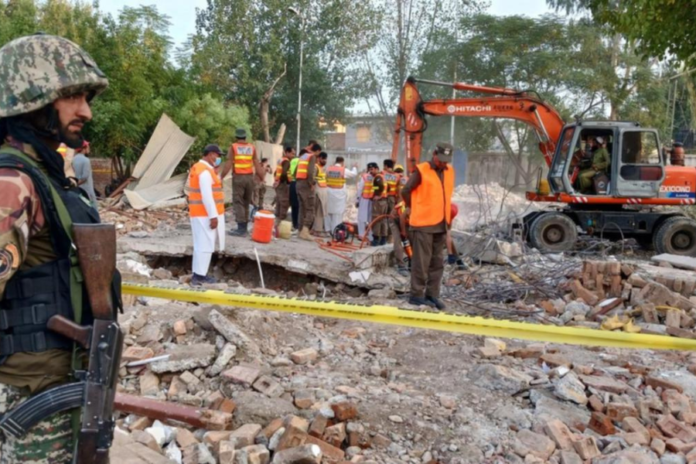As Muslims celebrated the birth of the Prophet Mohammad on Friday, suicide bombers struck two mosques in the Balochistan and Khyber Pakhtunkhwa provinces of Pakistan, killing at least 57 people, including seven children, according to police and health officials.
The attacks, from which the death toll could rise, left several people gravely injured and others trapped beneath the rubble. No group immediately claimed credit for the attacks.
According to senior police official Munir Ahmed, the bomber in the first blast in Mastung, Balochistan’s southwest province, set off his explosives next to a police car where people were assembling for a procession.
Abdul Rasheed, a local health director, estimates that more than 52 individuals have been killed, including the nine to eleven-year-old kids. There were at least 58 injuries.
One of those slain was a deputy superintendent of police who was in charge of the security arrangements during the festival in the area.
“Nawaz Gishkori tried to stop the suicide bomber, but he blew himself up after getting close to him,”, senior police officer Javed Lehri told the media.
People carrying flags and banners were gathered before a mosque of the Barelvi sect, which is typically seen as more moderate than Salafism and other hardline Islamic sects.
The veneration of the Prophet Muhammad is seen as heresy by some strict groups.
Five people died at a mosque in the second attack, which occurred in the neighbouring province of Khyber Pakhtunkhwa, according to rescue workers. According to broadcaster Geo News, the roof collapsed and roughly 30 to 40 individuals were buried under the debris.
An official reported that there were two explosions in the incident, one at the mosque gate and the other inside the enclosure.
In the lead-up to the national election in January, a rise in militant assaults in Pakistan’s western provinces has cast a shadow over election preparations and open campaigning, although up until this point, the attacks have primarily targeted security forces.
Both provinces share a border with Afghanistan, and in recent years, Islamist terrorists have attacked both of them in an effort to topple Pakistan’s government and impose their own version of strict Islamic law.
Anwar ul Haq Kakar, the acting prime minister, denounced the explosions and called for unwavering support for the victims while he was in Saudi Arabia for the Umrah pilgrimage.
Kakar is the leader of a caretaker administration charged with organising the upcoming presidential election.
Since a 2022 truce between the government and the Tehreek-e-Taliban Pakistan (TTP), an umbrella organisation of hardline Sunni Islamist organisations, failed, militant assaults have increased.
Since its founding in 2007, the TTP has been behind some of Pakistan’s worst attacks, although it has denied being behind Friday’s explosions.
TTP also denied responsibility for the January mosque explosion in Peshawar that claimed 100 lives, although a division of the umbrella organisation eventually claimed responsibility.
At a rally of a religious political party in Khyber Pakhtunkhwa in July, a suicide bomber killed around 40 people. That attack was attributed to the jihadist organisation known as Islamic State.



